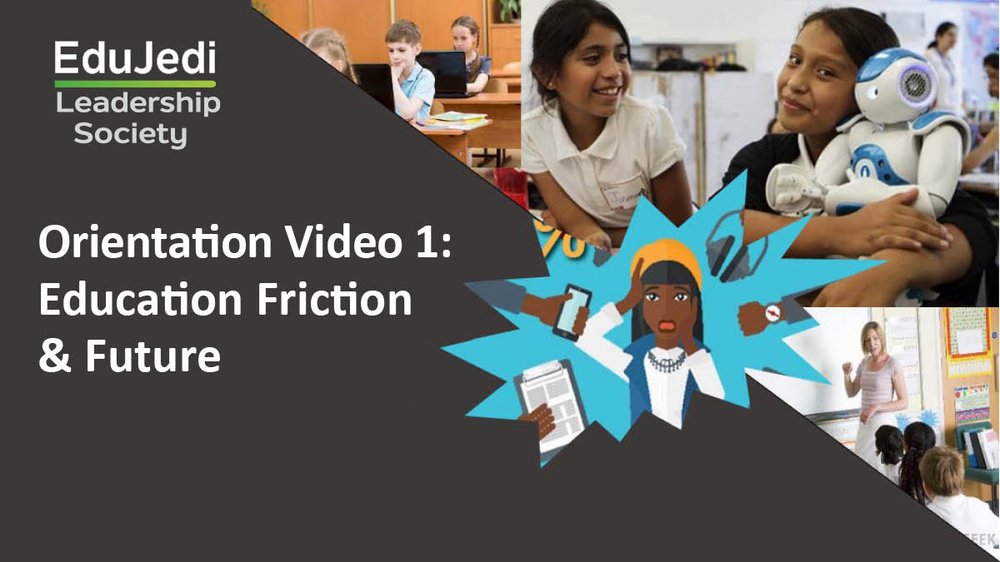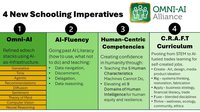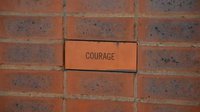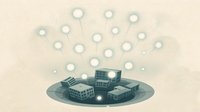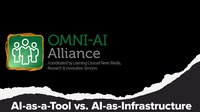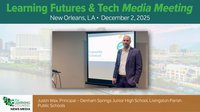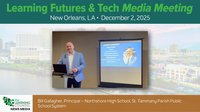The Learning Counsel’s EduJedi Leadership Society is an existing community of over 1,000 Schools and Districts that annually attend Digital Discussions meetings, as well as more than 215,000 U.S. educators who follow Special Reports for professional growth from the Learning Counsel.
EduJedi learn about how to be the future, with a context showing the usual, natural change pattern. This includes a change continuum that ends in what is known as the “Age of Experience,” with schools becoming centers of seamless and personalized experience, or “Expo.”
Other industries are already deeply into the Experience Age, responding to a new value system and economy that reward experience-driven products more than products or services only. This might seem subtle, but it is driving great wealth into the biggest companies who deliver on it like Uber, Microsoft, Apple, Amazon, Google and Disney. EduJedi find out the “why” behind those same cultural changes which make school transformation inevitable -- and how to get ahead of the curve.
The Edujedi training orientation video, written by individuals who have obtained the rank of EduJedi GrandMaster, is now available at no charge to individuals, schools and districts. The video is focused on what is happening in the Education sector. It is an orientation to what has changed in culture and the economy that is causing friction in the learning process. It’s also about the future survival of public education as we know it.
One of the reasons for the existence of the EduJedi was the observation by LeiLani Cauthen, the CEO of the Learning Counsel, and author of the book The Consumerization of Learning, that the growing digital curriculum software space was more complex than schools were prepared to understand. In 2013, she was getting twenty or more requests from new curriculum software companies a month as a member of the media. They wanted to demo to her or her news team to get editorial coverage. This led to doing a count and finding some 7,000 companies, most of them new and ranging from single one-off learning Apps on App stores, to whole digital libraries. to full courseware, to learning management systems, open educational free resources, and communications systems. If this much change was hitting the media intermediaries, then it would be overwhelming for schools. It would be disruptive. Schools have been used to doing book adoptions, a long and drawn out process that provided years’ worth of content to cover a large swath of curriculum. These old processes still hamper technologies of all kinds because they do not keep up with the fast-changing tech field.
While many leaders and schools do not see technology as necessarily disruptive, this is partly because of the way in which they are incorporating it. Technology is mostly being “allowed,” not really “led,” in detail at the classroom level. Technology as a tack on to the way teaching is done today is disruptive minimally to the administration, but really disruptive to teaching and learning. It’s something the teachers do, at least that’s the way many leaders think of it. It’s a teaching and learning thing, but not really an institution-wide thing.
The fact is that technology as a disruptive force is going much wider than the classroom, something to transform education into something else overall, possibly a different delivery model of learning that changes organizational structure as well, even the use of space, calendaring of activities, planning of time and staff duties, alternate grouping of students, and more.
For the first time, this orientation to the EduJedi training program is available in a new, high-impact video. It is loaded with value and will give every educator a better understanding of the factors that are driving change in every sector of education today. It is must see, and it can be yours simply by clicking the video below.

